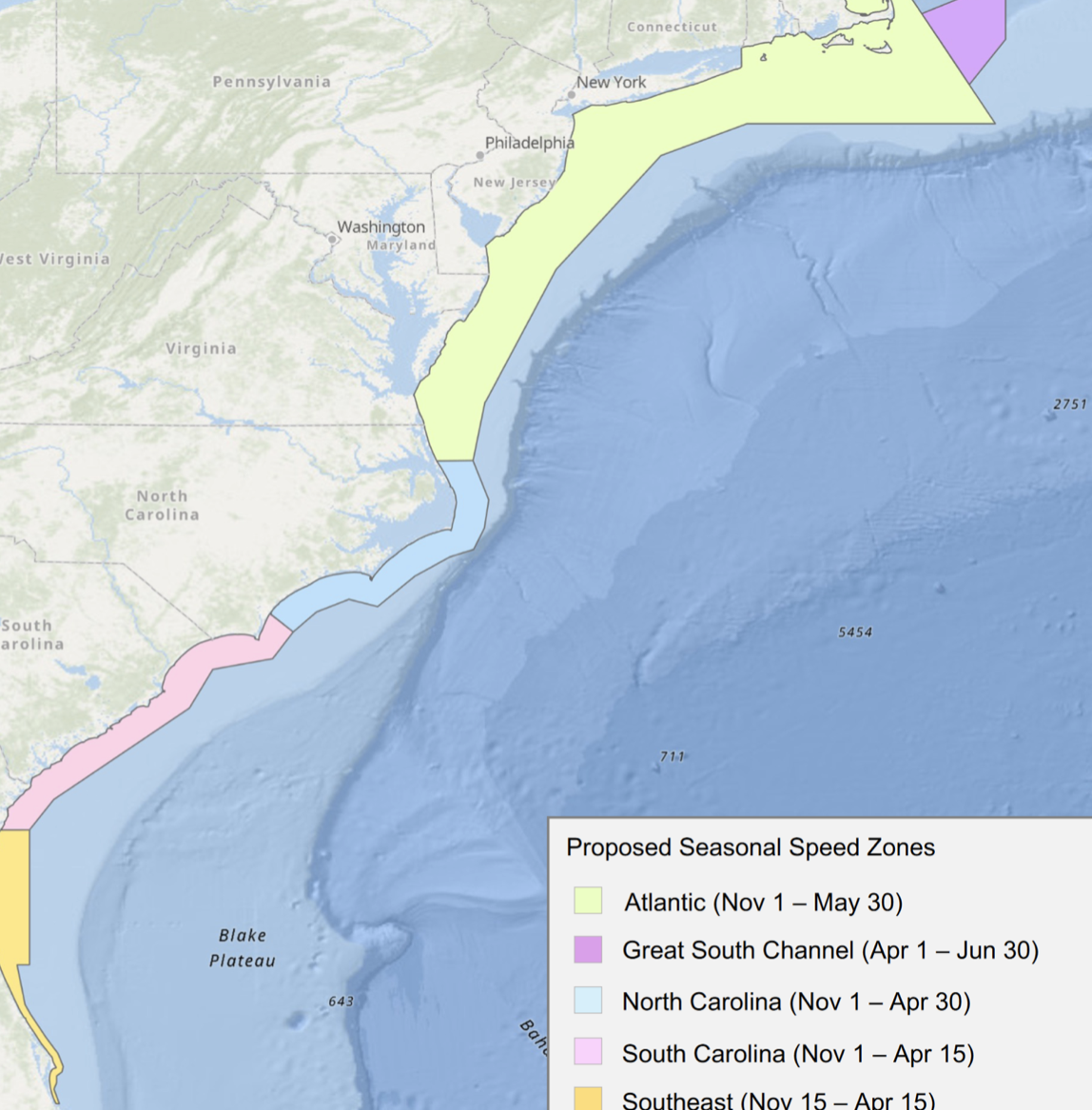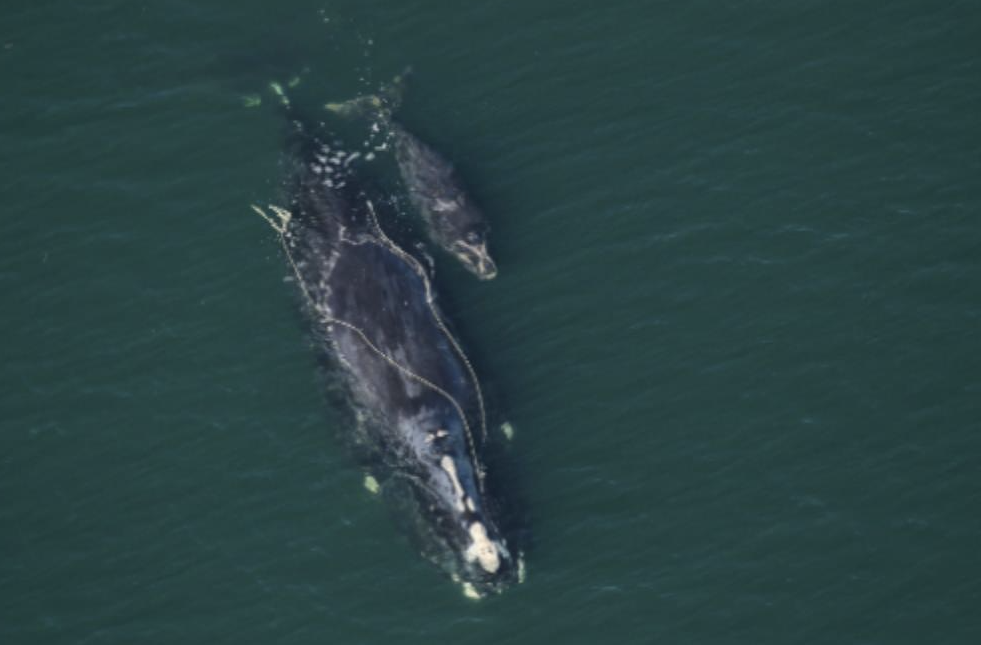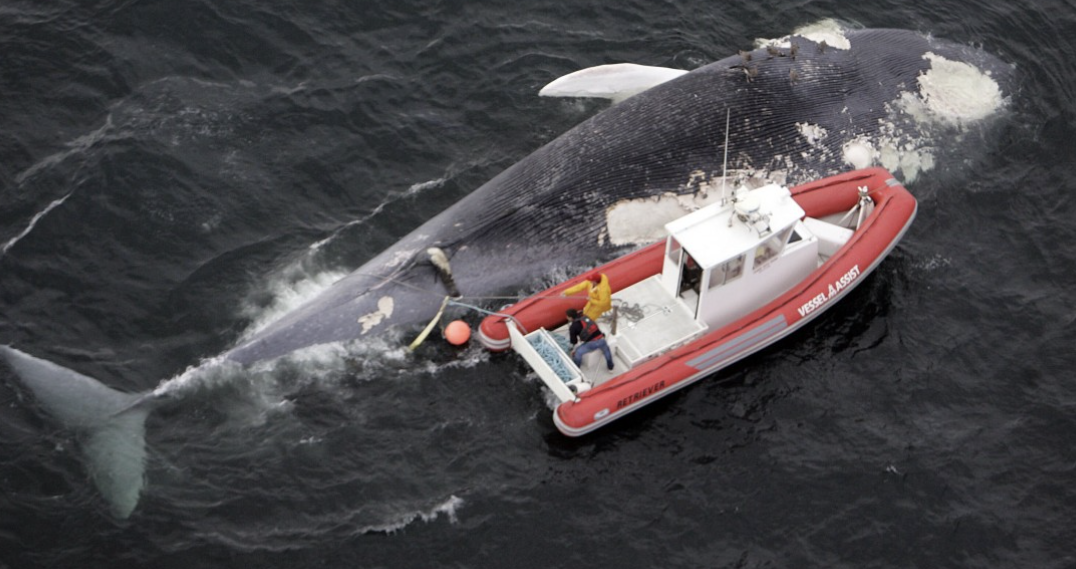NOAA Has Proposed Slow-Speed Zones Along the Atlantic Coast

Earlier this week, the leading organizations representing recreational fishing and boating in the United States urged the National Marine Fisheries Service (NMFS) to pause its proposed North Atlantic Right Whale Vessel Strike Reduction Rule, citing numerous significant flaws with the proposal.
The proposal expands the go-slow zones from discrete calving areas to essentially the whole Atlantic Coast out as far as 90 miles off of Cape Cod, and extends these zone restrictions as long as seven months a year.
While this proposed rule has been in development for more than a year, according to the fishing and boating organizations, and the NMFS did not conduct any formal engagement with stakeholders.
The boating and fishing industry spokesmen are asking for a “pause” that would allow time for additional analysis, and potential new alternatives to be developed in collaboration with the recreational fishing and boating industry.

"While we all support the intention of this rule to protect right whales, by not consulting with the recreational fishing and boating community at any point during its development, NMFS has put forward a deeply flawed rule that will have severe economic impacts and provide little benefit to right whales,” said Glenn Hughes, president of the American Sportfishing Association. “The fact that the proposed rule fails to meet 6 of the 12 criteria NMFS is using to justify selecting this option is clear evidence that a pause is necessary.”
“Protecting right whales is urgent, and we are ready to do our part. NMFS’ failed due diligence excluded from the conversation America’s recreational anglers and boaters – the most affected stakeholders,” said Jeff Angers, president of the Center for Sportfishing Policy. “
“Safeguarding our natural resources is always a priority of boaters, but it shouldn’t come at the risk of human safety. We believe the current proposed rule needs to be paused and redesigned,” said Chris Edmonston, president of the BoatUS Foundation.
“We look forward to working with NMFS on boater education and more effective ways to avoid whale strikes because we strongly believe boats can safely operate and avoid whales.”

A Boating Industry Plan
Generally, the aggrieved organizations believe more exploration of technology that can deliver real-time monitoring of individual Right Whales is needed.
It is feasible to gather real-time location information on a significant portion of the right whale population and disseminate information to mariners and other vessel operators, which would apply empirically-based, targeted precaution instead of excessively severe measures that do not accurately reflect actual risk nor can be adequately enforced.
Developing ways to distribute this information to vessel operators will only occur through direct engagement with the industry and fishing and boating organizations.